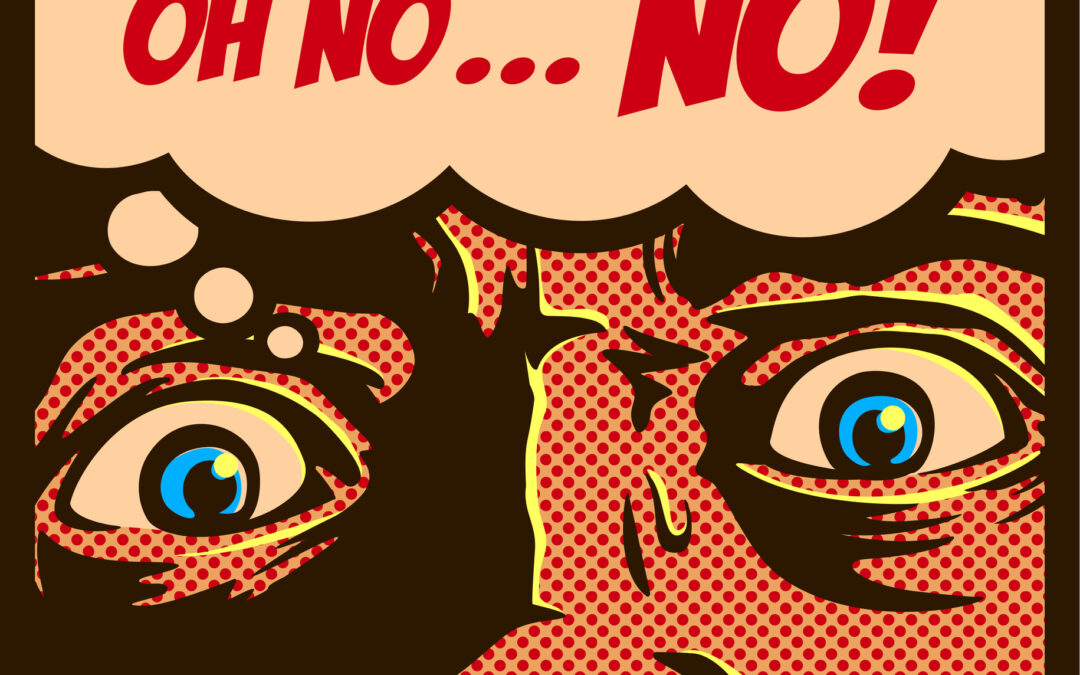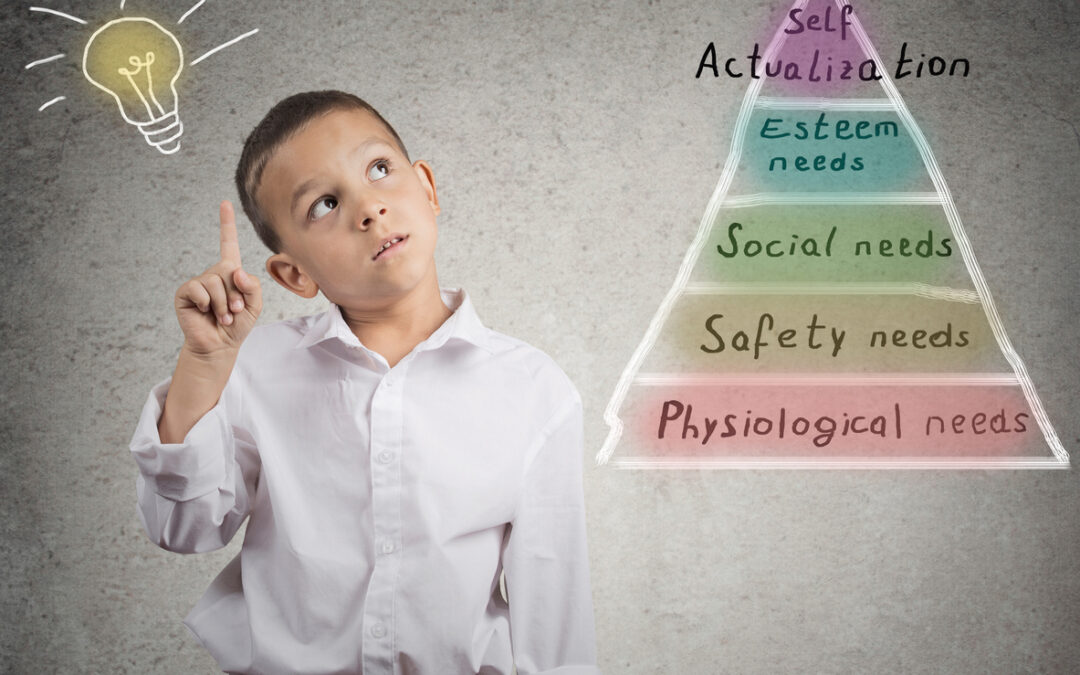Have you ever been so dejected or depressed that you began to question your worth as a person? What triggered that moment for you? Was it: A rejection, break-up, or abandonment? A harsh word or critique that hit like an arrow in the heart? A failure to live up to your...

How to Disobey “Worthless” Thoughts
If you believe you are “worthless,” it can bring on crushing feelings of depression and shame. But worthlessness doesn’t only impact how you feel. It also profoundly impacts what you do next. When you believe you are “worthless,” you might:
- Not ask for help
- Silence your voice
- Say ‘yes’ when you’d prefer to say ‘no’ (or vice versa)
- Deny your own needs
- Stick it out in a toxic workplace or relationship
- Stop trying
- Quit things that matter most to you
- Isolate from friends or family
- Spend money on others but not yourself
- Behave recklessly
- Cover up, conceal, or hide
The trouble is, the more you behave as if you are worthless, the more shame you feel, the more you believe you are worthless. This perpetuates more of the same stuck behavior. It’s a vicious circle.
DISCLAIMER: Before we dive in too deep, as detailed in my post “Why I Think ‘Worthless’ Isn’t a Feeling AND Why that Matters,” I see “worthless” as a judgment NOT a feeling. Worthlessness is a malleable belief system that can be changed as you alter thinking, change behavior (the focus of this article), and heal from past hurts or traumas.
CHALLENGE: Imagine for a moment that a miracle took place while you were sleeping and you wake up in the morning fully believing that you are a person of infinite worth. Really stick with the image for a few minutes even if it’s difficult. Grab a piece of paper and jot down your ideas about how you interact with your day differently if you were to see yourself as WHOLE and WORTHY.
Depending on how deeply the belief of worthlessness has taken hold, perhaps behaving as if you are a person of worth starts with taking care of basic tasks of living, such as:
- Rolling out of bed (maybe rolling on to the floor if that’s what gets you started)
- Getting dressed in clean clothes
- Taking a shower
- Brushing your teeth
- Checking the mail
- Scheduling that doctor’s appointment or dentist appointment you’ve delayed
- Getting in to see a counselor or psychiatric medication prescriber
If your beliefs about worthlessness have impacted your relationships, behaving as if you were a person of worth might look like:
- Reaching out to friends or family you find trustworthy
- Practicing vulnerability (again, with those you find trustworthy)
- Accepting an invitation (or declining an invitation if your experience of worthlessness involves co-dependent people-pleasing)
- Putting yourself out there to make a new connection
- Raising your standards for friendship or dating
- Setting boundaries with someone causing you harm
- Speaking up about something you’re needing
If beliefs about worthlessness have impacted you at work or school, behaving as if you are worthy might involve:
- Requesting accommodations
- Applying for that promotion or job change you’ve been too scared to try, even if it doesn’t work out; as a student, perhaps trying out for the school play or a position on a team (regardless of outcome)
- Going back to school later in life
- Asking for help or more training
- Giving yourself a break to prevent burnout
- Making a change to your schedule to accommodate what you’re really needing
- Living like Teddy Roosevelt’s “Man in the Arena”(however that translates for you)
If body image struggles have been a source of worthless thoughts, perhaps behaving as if you are fully worthy involves:
- Buying clothes that fit your body comfortably at its current size
- Nourishing yourself with consistent food intake throughout the day
- Moving your body in ways that feel joyful but not self-punishing
- Not letting your body hold you back from living your life (ex. Going swimming, traveling, dating)
- Asking your doctor not to weigh you unless it’s (truly) needed medically
- Respecting your body with your thoughts (get your inner bully in check)
- Reading the book “Body Respect” by Lindo Bacon for even more ideas
These are all only examples. You will customize your behavioral REBELLION against worthless beliefs based on how worthlessness impacts you.
ASK: What action does worthlessness want you to do? You can either obey or disobey. Real change happens when you begin to DISOBEY.
In Dialectical-Behavioral Therapy (DBT), there is a skill called “Opposite Action” that helps shift negative beliefs with different (opposite) behavior. Here’s a video where you can learn more: https://www.youtube.com/watch?v=wkxOICjG2is
The big idea is this– If acted as if you are a person of worth EVEN BEFORE YOU BELIEVE IT’S TRUE– you can impact how you feel about yourself positively. Sometimes Action comes before Belief. Sometimes Action comes before you Feel any differently.
As mentioned above, many folks that experience worthless beliefs have trauma experiences that have contributed to low self-worth. If you’re curious about the impact of past experiences on worthless beliefs, ask yourself..
- When did you first start to believe you are “worthless?” Did someone in your life send you this message– directly or indirectly?
- Did you have experiences of emotional neglect that taught you that your feelings or needs weren’t valuable?
- Did you experience physical, sexual, verbal, or emotional abuse at anytime in childhood or adulthood?
- Did you experience other Adverse Childhood Experiences(ACES)?
Let’s not pretend that any of this work is easy, especially if you are feeling depressed! That’s why many people get support from a professional therapist when doing this work. Don’t hesitate to reach out for support. You’re worth it!

Why I Think “Worthless” Isn’t a Feeling AND Why that Matters

How To Stop Beating Yourself Up
When was the last time you heard from your inner critic? You know, that voice in your head that constantly judges you, puts you down and compares you to others. The one that tells you you’re not good enough or smart enough and says things you would never dream of...

Afraid of Failure? Here’s Advice on Coping with Failure
Fear of failure causes us to put the brakes on our life. When we’re so afraid of failing at something, we either don’t try at all, or we subconsciously undermine our own efforts to avoid an even bigger failure. Without question, fear of failure is immobilizing and,...

Authentic vs. Inauthentic Shame: Why It’s Essential to Know the Difference
The feeling of shame has a reputation of being the vampire of emotions--the feeling that will suck the life right out of you. Because it comes with it a very physical discomfort, heat, and pain, it’s probably on your list of emotions to be avoided at all costs. In...



















